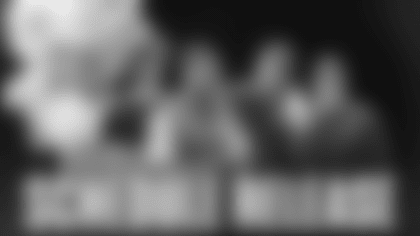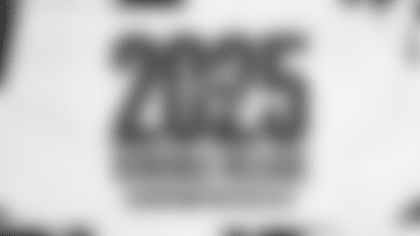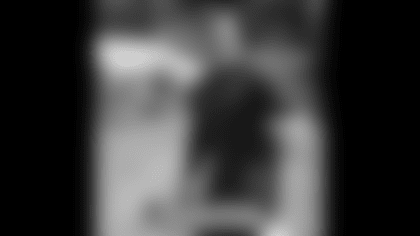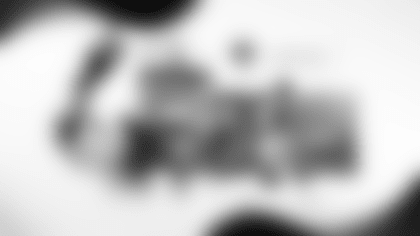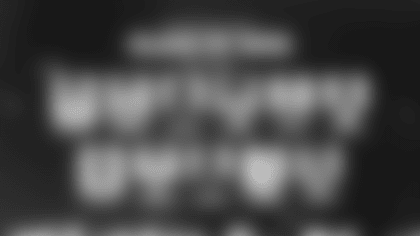[

]()
BB: I don't have any update on the injuries. We'll take it a little bit slower today without the game coming up this week. Just reviewing the game yesterday, it was one of those situations where (we) kind of felt like the first third of game, we played sort of like we would like to play. I thought we had control of the ball offensively. We had three fairly substantial drives. (We) were able to keep the Packers off the board defensively. Unfortunately we weren't able to finish our drives and get many points out of it offensively. Defensively, after we made a stop there in the red area, we gave them the ball back on a couple of bad penalties on special teams and that led it to 7-3. And then from that point on, really, (we) just played the game consistently poorly in every area. Offensively, defensively and special teams, I don't think it was just all to one play. But clearly when it became 14-3, then ultimately 21- and 28-3 in the third quarter, things went from bad to worse. And we didn't do anything to make it any better. Obviously a real disappointing performance, not one that I hope is characteristic of this team. I think we have some smart players on our team, but we're not playing very smart football right now. We're just giving up the ball too easily, creating too many second opportunities for our opponents by letting them off the hook on third down or by putting ourselves in second- and third-and-long situations by not taking advantage of the opportunities that are out there. As I said yesterday, I think we're at the point where we need to rebuild this a little bit. That's what we're going to start to do. We can't play like we played yesterday, or like we played the first half in Miami, or it'll be a long year.
Q: By rebuilding you mean, using the same blueprint?
BB: I am sure that we are going to need to make some changes because we can't keep playing like this. But whatever it is, it will entail improving our performance on the field. That's really what it's all about. It's improving our performance on the field and playing better. We can throw around a lot of buzzwords and catchphrase's today and talk about some philosophy or some great revolution. Until it happens on Sunday afternoon in a competitive situation, it really won't have much value or meaning. So the bottom line is to improve the performance on Sunday and we need to find a way to do it and that's collectively all of us. It's not one player, it's not one aspect. It's just a total team effort and it starts with me and includes everybody that is part of the team.
Q: Can personnel changes pretty much be ruled out because as you know there is not much out there?
BB: You're right, definitely. There aren't a lot of options there. I'm not ruling it out 100 percent, I'm not saying that it couldn't happen, but there are very few options. That's exactly right.
Q: Because of injuries, you've had five different offensive line starting lineups in six weeks. Are you going to probably just commit the five guys and just stick them in there?
BB: Hopefully. If we can get five healthy ones out there on a consistent basis, we would like to do that.
Q: But would you put them in there and just leave them? Like if (Damien) Woody plays – just stay there?
BB: If we can do that, we sure will. Yup, we sure will. Believe it or not, that is what we have been trying to do but we certainly haven't been able to do it.
Q: What kind of changes do you see on offense, from the standpoint of tactically?
BB: Well I think we have a basic framework that we want to try to work within and that will vary from game to game based on personnel matchups, game plan, playing conditions and so forth. I don't think you can say going into any given game in the future or the last 10 regular season games, that we're going to be 'x' percent play-action pass, 'x' percent run. I think some of that is going to vary based on the factors that change from week to week.
Q: For instance last you had much more balance passing the ball and running the ball on offense than you have this year. This year you are passing it almost 50 percent more than you are running it. Is there any reason why you are doing that?
BB: The reason in the last two games, (it) had to do with the score. It had a lot to do with the score in that situation. Last year in Miami we were behind, and we threw the ball a lot in that game down there too. So if you fall behind early, which we have the last couple of weeks, I'm talking about relatively early, early in the third quarter or at half time, then that dictates a little bit of what is going to happen in the second half.
Q: In the first quarter yesterday when the score was 0-0, you passed the ball 12 times and ran four times.
BB: Right. Well, look. We can sit here and second-guess the play calling whenever we lose. I know that is always going to be a part of it. They had two starters out in the secondary, so if we had run the ball yesterday and lost then we would be talking about how come we didn't throw it more when there were backups in the secondary. So, we did what we thought was best and some of it worked out. Some of it didn't. As I said, I thought in the first half, until the lateral, that we had pretty good ball control. We moved the ball down the field; we had good time of possession. We set up some scoring opportunities; we just weren't able to capitalize on them. And we didn't get enough points on, whatever it was, 20-something plays we had in the first quarter-and-a-half. We just didn't have enough points to show for them. But moving the ball and getting first downs and getting down there wasn't really the problem. It was getting points up on the scoreboard. That's where we came up short.
Q: A year ago your team seemed to have a lot of success taking advantage of little things that happened. The lateral struck me as the kind of play, a year ago, eight guys would have been on the ball, and instead everybody was kind of just standing there.
BB: One guy – Stephen Neal. One guy. It was a total, total breakdown down of alertness and being aware of the situation. And there were a lot of people on the sideline that … we were standing there, the whistle hadn't blew, (we) didn't hear a whistle. You don't hear a whistle, you keep playing and we didn't. So it was a very un-alert play, is that a word, un-alert? It was an un-alert play by most of the players who were out there on the field. And it cost us. It's a bad football play. You always play to the whistle, you always go hard until the whistle blows and then whatever happens, happens. But to just stand there and look at the ball was just poor.
Q: Did Neal get hurt on that play or was it subsequent to that?
BB: Yeah, it was right there.
Q: Has this kind of snowballed since the Kansas City game or is each week been its own entity?
BB: Well unfortunately, I would say there was a common thread. There is certainly a common thread. I mean, the turnovers have accelerated the last three weeks. But penalties started with Kansas City. Defensively giving up third-down conversions and penalties on third down, those really are like turnovers. It's putting your opponents back on the field or on special teams; fourth down penalties; it's the same thing. Putting your opponent back on the field, in good field position with another opportunity, especially an offense like Green Bay's was yesterday. You create second chance opportunities and eventually it's going to cost you and it did. It cost us.
Q: As a coach, when you have a number of things that seem to be breaking down, turnovers, penalties, red-zone defense, maybe a little of run defense, where do you try and address them?
BB: All of the above. They are all important. I'm not going to sit here and say that they aren't all important because they all are. They all have been addressed, will be addressed, and need to be improved or we'll be having the same conversation every Monday.
Q: Were any of these things existent before the Kansas City game?
BB: Sure. You can go back to every game this year and find problems in different areas. Again, it didn't necessarily show up on a particular player in the stat sheet, but it didn't mean that guys weren't open, or there wasn't a hole there that for one reason or another, they weren't able to enter into. We quite had everything the way we wanted a certain play, even though it might have worked, it might have scored, it might have been successful, there might have been other elements of the play that didn't look quite as good, but for some reason they didn't have the right call on to expose them at that particular point. Whatever the case is on each individual play. Nothing was perfect in Week One and they are certainly not perfect now. But there are always things to work on and things to improve and situations that we can handle better. We try to learn from all of them. The repetitiveness of what we have gone through the last couple of weeks is definitely not what we're looking for.
Q: I am not asking you to rip the officiating, but how you do address the penalty issue with your team? It seemed the officials were 'flag happy' yesterday?
BB: It's not our job to call the game. We can't call it. What I think about a penalty doesn't make any difference. What a player thinks about it doesn't make any difference. The only thing that matters is how the officials see it and how they call it. Whether the game is being called tightly or loosely or somewhere in the middle, it's up to us to a) play within the rules and b) know how the game is being called and to play accordingly. And that's all we can do. But that's what we need to do. If the plays are being called tight, then we need to be a little more restrictive in what we're doing. If things are being extended a little bit further, if that's the way the game is going, then maybe we can extend and bend a little bit with it. In any case, it doesn't really matter what we think. What we need to do is understand the rules, understand how they are being called and play the game accordingly. That's what we have to do. There's always going to be some close calls in the game, you think that over a 16-game season, if you been in the league 28 years, you think those calls eventually will even out one way or another. When you do things that are obvious penalties – line up offside, start before the snap count before the ball is snapped – stuff like that. There is no gray area on that. That's just lack of concentration penalties. It's as simple as that.
Q: After (Tom) Brady's first interception, did Green Bay's defense seem to settle down from that point?
BB: Again, I thought we moved the ball, I think it was our first three possessions, pretty well on all three of those possessions, even after the interception. We moved it down there, then again came up without a lot of points. We kept the game, we had some time of possession, we had some field position and we were able to keep the ball out of their hands. That's what we were looking to do. Unfortunately, we missed an opportunity on that first go-route, (Bryan) Westbrook made a good play on the ball so they ended up with the ball inside the 10-yard line, whatever it was. But it was only second down and we would have liked to have another shot at it. But that is what happened there. Again, until the screen pass, the lateral, overall we did some of the things that we were trying to do in terms of control the ball, keep their offense off the field, make first downs, put their offense in bad field position. But that was a play that went against that. Then there were a lot of plays after that, that went against that. Believe me, I not saying anything was perfect to that point but it was more of the way we wanted to try and play the game.
Q: Yesterday, you were ready to totally start over and today you are talking about capitalizing on opportunities. Having slept on it, have you changed your mind, thinking maybe these things can be fixed?
BB: No. I don't feel any differently than I felt yesterday. I mean maybe it's coming across differently, but I don't feel any differently than I did yesterday. The problems that we had, I said, early in the game we managed the game close, again, not perfectly, to the way we wanted to go in and manage it. It's a four-quarter game. It's a 60-minute game. There were two-and-a-half quarters there where (there were) too many penalties, too many turnovers, too many third down conversions, not good in the red area on either side of the ball, problems in the kicking game. When they extend that far, then I think what I said yesterday, that's the way I feel. We've got to address things on a number of different levels. It's not just one problem, it's not just jumping offsides. There is a lot more than that.
Q: Can you be more specific about what changes that may be made?
BB: That's what we're going to spend the next … we've already, Charlie (Weis) and Romeo (Crennel) and Brad (Seely) and I have already talked to the staff a little bit. We've already started talking about some things that we feel like we need to do moving forward. We'll talk about those and that's part of what this week will be for. You know, we don't have a game this week, so part of what we will do this week is to take a look at a couple different, well more than a couple, take a look at some different things. There are some things that I am sure we won't change and we'll try to do better. And there are other things that we'll probably feel like aren't going the way exactly the way you want them to do and we'll try to vary them in some way. Again, that extends to everything. I know you are looking for a specific example but it could extend to the plays, the techniques, or personnel changes. It could extend to any of those. Maybe a combination of more than one of them, I don't really know.
Q: You said before, you would call whatever play you feel gives you the best chance of making that play. If you are passing twice as much as you are running, is that an indication that you are not that confident in your running game?
BB: No, I wouldn't say that. Last week against Miami, we ran the ball, whatever it was, 13 times in the first half and threw it seven. The numbers are just the reverse of what they were this week in the first half. Pick out whichever game you want, we lost both games. It's bad play calling in one game, it's bad play calling in the other. You can have it whichever way you want it. We ran the ball too much in Miami, we threw too much against Green Bay. So, you want to call it bad play calling, call it bad play calling. It's fine.
Q: Even though Tom has had a lot of success, he's still a young guy. Do have any concerns that these mistakes are going to make him gun-shy? Make him not want to make throws?
BB: I think right now what we need to do is cut down on our mistakes. That's obvious. We need to cut down on our mistakes. If taking less chances to cut down our mistakes, if that's going to result in fewer mistakes, I'm talking about collectively as a team not any individual but just collectively as a team, then that's certainly something we need to consider. Because we can't play the way we have been playing. It just won't work. It simply will not work.
Q: What will the players' schedule be like this week?
BB: We will have a regular schedule through Thursday.
Q: When does Denver come back into the mix? Will you start on them this week or will you wait until after the bye week?
BB: No, we'll start on them. And that's something we'll have to balance out during the week how much are we working on Denver, how much are we just trying to work on our basic things that no matter who we play, we need to work on. I am sure it will be some of both. But how that balances out, what the percentages are, we'll have to decide that before we go back on the field on Wednesday.
Q: You've talked about starting over yesterday, but you also seem to be defending the theory at least of throwing. Have you eliminated the possible need to look at the play calling or perhaps start over there as well?
BB: We'll do whatever we think is the best thing to do that will improve it. If we run it 2-1 like we did in Miami and we can move the ball successfully there, that would be great. If we throw it 2-1 and are successful there and can score then we will take that too. But it's the second-and-10's, the second and-20's, the third-and-15's, however you get to them doesn't really matter I don't think. (It) doesn't really matter whether you don't gain anything in the running game, whether you are called for a holding penalty, whether you are throwing an incomplete pass, your second-and-10, third-and-10, you still have to convert. We were in too many of those situations. We've been in too many of them and usually not a lot good happens and that's what it's been. It's been problems in the pass rush, turnovers.
Q: What has happened with your run defense as you can see it? Is it players? Is it technique?
BB: He's a good back, and sometimes they blocked us and other times we didn't play the defense or execute the defense the way we'd want to have it executed. A couple of times they had on good plays against defenses that were a little weak at the point where they attacked them. So I would say it's a combination of all of them.
Q: People in some ways, and you as well, talked about the lateral a play that might be indicative of a general mood. I'm wondering if the Richard Seymour penalty is indicative of a fatal problem because the same things happened last week. Are guys not taking to heart what they are being told?
BB: The play last week?
Q: When (Tedy) Bruschi came over the top and …
BB: Well look, the field goal play, it was a bad play. (You) line up offside and commit a penalty after the play was over. So that's the kind of thing I've been referring to. That those type of plays that create second chance opportunities for a team like Green Bay are just too much for us to overcome. They are probably too much for any team to overcome. But they are definitely too much for us to overcome. It's mistakes, it's bad judgment. And I'm not singling out the players that made them on that play because we had plenty of people make them in other situations too. It's team wide and like I said, accountability starts with me and goes down to everybody and we all need to do a better job. I am not trying to single out anybody because I don't think anybody deserves to be singled out. But collectively, (we) just didn't do a good job at all and we're all accountable and it's unacceptable. So we're going to work hard to try to improve it.






